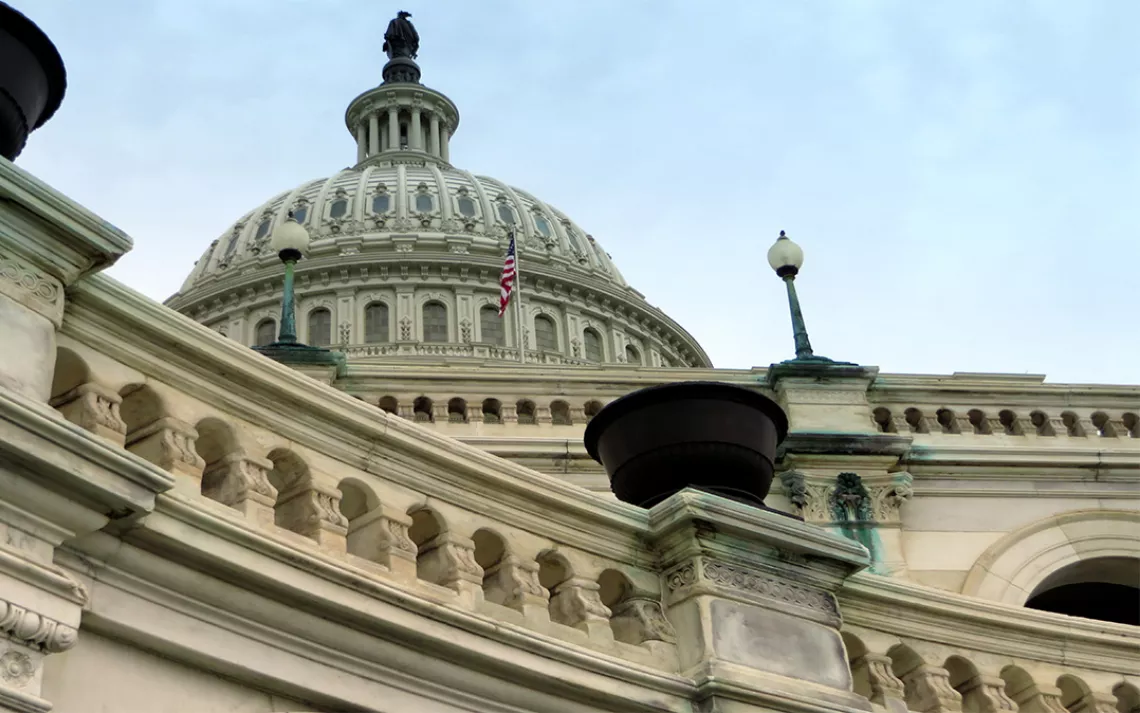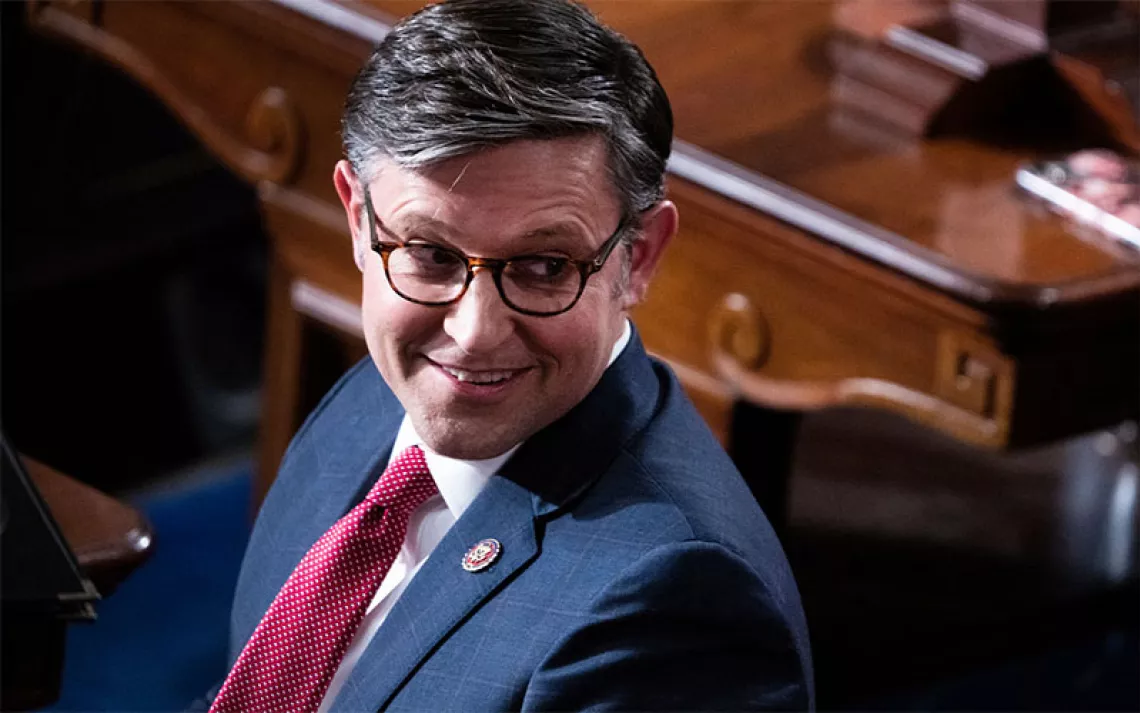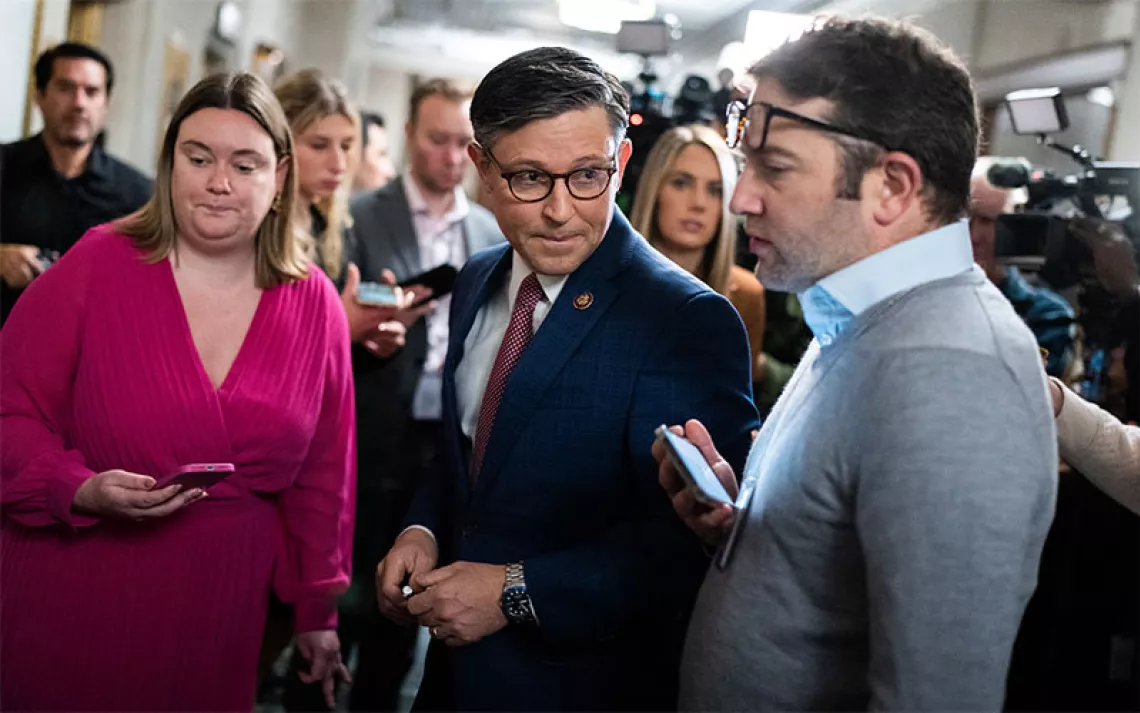The United States of ExxonMobil?
The U.S. Senate should block the nomination of Rex Tillerson as secretary of state

Photo by j76n/iStock
Forget Ivanka Trump, the glam first daughter who says she really, really does care about sustaining a livable climate. Forget Al Gore, too, who after meeting with the president-elect at Trump Tower said the two men had enjoyed a “sincere search for areas of common ground.” Forget dreamy Leonardo DiCaprio, who also met with Ivanka and Donald Trump last week and gave them a copy of his searing new climate doc, Before the Flood.
The catwalk at Trump Tower is all for show, a well-calculated smoke screen to distract from the real business going on behind the proscenium. Even as the Trump family was playing footsie in public with eco-luminaries like Gore and DiCaprio, behind gilded doors the president-elect’s transition team was laying plans for the nomination of a trifecta of fossil fuel partisans who, if confirmed by the Senate, will likely do lasting harm to the planet.
The national media—and, let’s face it, some environmentalists—had barely stopped chattering about Gore’s face time with Trump when the president-elect picked Scott Pruitt, the Oklahoma attorney general, to take over the EPA. Pruitt is a longtime bagman for oil and gas companies—as the Oklahoma AG, he has spearheaded state-level opposition to the Clean Power Plan. He’s also a proud know-nothing when it comes to climate science. In an article earlier this year for the National Review, he wrote that “scientists continue to disagree about the degree and extent of global warming and its connection to the actions of mankind,” a statement that belies the overwhelming scientific consensus on climate change.
Then Trump picked Washington State representative Cathy McMorris Rodgers to be his interior secretary. She’s a supporter of offshore oil drilling along the Pacific and Atlantic coastlines as well as in the Arctic National Wildlife Refuge. The League of Conservation Voters gives her career voting record a score of just 4 percent.
If you care about maintaining a stable climate and a healthy environment, Pruitt and McMorris Rodgers as the heads, respectively, of the EPA and the Interior Department are something like tragedy. But Rex Tillerson, the longtime CEO of ExxonMobil, as secretary of state? That’s more like farce.
During his long, drawn-out, ready-for-reality-TV search for a secretary of state, Trump reportedly considered a range of candidates. Archrival Mitt Romney made the list, in part because, as Trump put it, Romney “looked the part” of secretary of state.
With his silver-fox styling and John Boehner-like perma-tan, Tillerson looks the part, too—if you’re going for climate villain from Central Casting.
ExxonMobil is, of course, the world’s largest publicly traded oil company (several state-owned companies are bigger petroleum producers). Judged by its business model alone—spending billions of dollars a year on locating new oil and gas reserves, even as scientists tell us we must stop burning the stuff—ExxonMobil is a threat to the public good. Just as disturbing is the company’s record of fueling climate change disinformation. Even though its own internal researchers had confirmed humans’ role in global warming as early as the 1970s, for decades the company fought any attempts to curtail greenhouse gases while funding climate science denial. Those lost years are now speeding us closer to climate change disaster.
Rex Tillerson bears a lot of the responsibility for that record. After all, he’s an Exxon man through and through. He’s been the CEO for a decade and a company employee for more than 40 years. It’s the only place he’s ever worked.
So far much of the commentary about Tillerson as secretary of state has centered on ExxonMobil’s warm relationship with oil-rich Russia. Both ExxonMobil and Vladimir Putin’s government have a lot to gain from an end to U.S. sanctions—an estimated $500 billion to gain, actually. That’s got even some Republicans worried.
But perhaps most worrisome about the prospect of a Secretary of State Tillerson is what it reveals about Donald Trump’s thinking regarding the relationship between government and corporations. Writing on Friday in the Washington Post, Michael Kinsley (a medium of Beltway conventional wisdom if there ever was one) came out and said that “Donald Trump is a fascist.” Kinsley was careful to say that he didn’t mean Trump is a fascist in the concentration-camp-and-armbands kind of way. Rather, Trump is a fascist “in the sense of somebody who sincerely believes that the toxic combination of strong government and strong corporations should run the nation and the world.” Kinsley’s definition of fascism echoed a now-infamous line from Italian dictator Benito Mussolini: “Fascism should more properly be called corporatism, since it is the merger of state and corporate power.”
Trump’s cabinet choices prove the point. So far what we have is a collection of tycoons and generals—a group of billionaires, CEOs, former and current Goldman Sachs employees, plus a lot of brass, including a general who once went by the call sign “Mad Dog.” Tillerson fits the pattern perfectly. The longtime head of ExxonMobil now heading U.S. foreign policy? That’s a mega merger of state and corporate power.
Control of vital resources—especially oil—has long been a driving force of U.S. foreign policy. All too often, our addiction to oil has warped America’s foreign policy priorities, as the serial entanglements in the Middle East demonstrate. With oilman Rex Tillerson in charge of foreign policy, at least there’s no middleman anymore. Perhaps Trump would think of this as a business synergy.
After the inauguration, the Trump opposition in the Senate will, by sheer political necessity, have to pick which cabinet-level nominees it lets slide and which it will fight against. For many Democrats, that’s going to be a tough choice (a fast-food magnate to oversee the Department of Labor?). No matter what, they should draw the line at Rex Tillerson as secretary of state.
Editor's Note: On December 13, Trump transition officials indicated to news outlets that first-term Republican U.S. Representative Ryan Zinke of Montana is now the frontrunner for interior secretary.
 The Magazine of The Sierra Club
The Magazine of The Sierra Club







